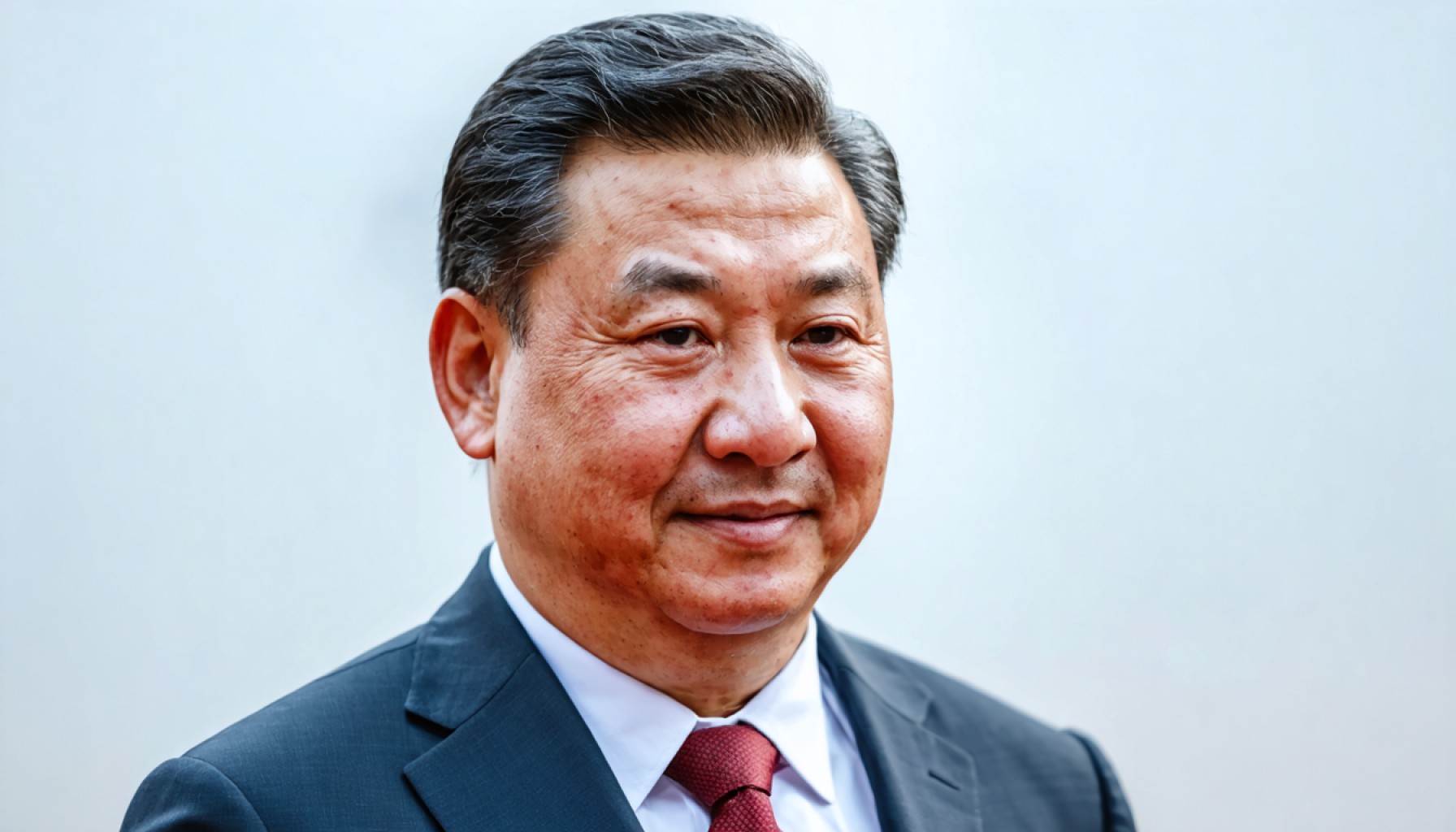- Jiang Chaoliang, a notable figure in China’s National People’s Congress, is under investigation for severe ethical violations and unlawful acts.
- The probe, led by the Central Commission for Discipline Inspection, disrupts the routine of China’s political landscape, highlighting ongoing anti-corruption efforts.
- Jiang’s career, once distinguished with roles such as Governor of Jilin and Party Secretary in Hubei, faces scrutiny that threatens to redefine his legacy.
- This investigation underscores the commitment to rooting out corruption, signaling that no official is beyond reproach.
- The case highlights the delicate balance between influence and integrity for those in public service, emphasizing that accountability and vigilance are crucial.
- The situation serves as a reminder of the ongoing battle against corruption, vital to maintaining integrity within China’s political framework.
A stormy cloud hangs over China’s political landscape as the Central Commission for Discipline Inspection initiates a probing investigation into the activities of Jiang Chaoliang, a prominent figure in the National People’s Congress. Accused of severe ethical violations and unlawful acts, Jiang now stands scrutinized by China’s top disciplinary authorities.
The soft chimes of alarm bells resonate through the halls of governance, interrupting the routine clatter of political order. Born in August 1957, Jiang has navigated a distinguished path through the ranks, serving as Governor of Jilin Province and holding the esteemed post of Party Secretary in Hubei. His illustrious career, however, is now overshadowed by allegations that threaten to redefine his legacy.
Whether in shadow or light, the power corridors of China’s legislature are accustomed to such turbulent tides. Yet, this investigation underscores a relentless commitment to rooting out corruption at the highest echelons of power. It signals a potent reminder that even seasoned officials are not beyond reproach, echoing the broader anti-corruption drive pivotal to China’s political ethos.
As the investigation unfolds, all eyes remain riveted on the repercussions. The affairs concerning figures like Jiang serve as a reminder of the thin line between influence and integrity, a balance that those in public service must vigilantly maintain. The gravity of this investigation reinforces the core message: accountability is paramount, and vigilance is essential.
In this unfolding drama, one thing is clear—the quest for integrity within the political sphere remains a ceaseless endeavor, challenging individuals and enlightening the public about the perennial battle against corruption.
Shocking Fallout: What Jiang Chaoliang’s Investigation Means for China’s Political Climate
How-To Steps & Life Hacks: Understanding Anti-Corruption Efforts in China
1. Stay Informed: Follow credible news sources such as BBC or CNN for updates on political investigations. Knowledge about current events can offer insights into governmental transparency measures.
2. Research Anti-Corruption Measures: Explore white papers and official reports from agencies like China’s Central Commission for Discipline Inspection to understand governmental strategies and policies aimed at curbing corruption.
3. Observe Patterns: Study previous investigations of high-ranking officials to predict potential outcomes and the broader impact on political stability.
Real-World Use Cases: Implications of Political Investigations
Political investigations often lead to a restructuring of power, setting precedents for transparency and accountability. In Jiang Chaoliang’s case, a possible conviction might lead to tighter scrutiny on high-level officials, impacting policies within the National People’s Congress.
Market Forecasts & Industry Trends: China’s Political Stability and Economic Implications
The political stability of China is crucial for economic confidence and market performance. Disciplinary investigations can create temporary economic uncertainty, affecting foreign investment and market forecasts. However, China’s stringent anti-corruption policies often result in a more resilient and reliable economic environment, restoring investor confidence over time.
Reviews & Comparisons: Jiang vs. Previous Investigations
Jiang Chaoliang’s investigation mirrors past high-profile cases, such as those involving Bo Xilai and Zhou Yongkang. Comparing these cases reveals patterns in disciplinary actions and potential political repercussions.
Controversies & Limitations: The Double-Edged Nature of Anti-Corruption Drives
– Controversy: Anti-corruption drives can sometimes be politically motivated, serving as tools to eliminate rivals rather than genuine efforts to clean up governance.
– Limitation: Excessive purges might lead to internal instability, affecting policymaking and governance efficiency.
Features, Specs & Pricing: Overview of China’s Anti-Corruption Framework
– Features: China’s anti-corruption agencies operate independently of party influence, focusing on investigations, audits, and transparent reporting.
– Pricing: The economic cost of corruption is significant. Studies suggest a correlation between corruption reduction and increased GDP growth.
Security & Sustainability: Long-Term Impact
While anti-corruption measures ensure political integrity, sustaining them requires ongoing dedication and policy refinement. Over time, these measures contribute to a more robust governmental structure, albeit with challenges to consistent implementation.
Insights & Predictions: The Future of Anti-Corruption Efforts in China
The rigorous pursuit of corrupt officials is expected to continue under President Xi Jinping’s leadership. Future policies may emphasize digital transparency and advanced monitoring technologies to further reduce corruption.
Tutorials & Compatibility: Public Participation in Anti-Corruption Efforts
Public reporting channels such as hotlines and online portals empower citizens to actively participate in anti-corruption efforts, creating a synergy between the public and government in maintaining integrity.
Pros & Cons Overview
– Pros: Enhanced governance, improved international image, and business environment.
– Cons: Risk of political misuse and potential instability.
Actionable Recommendations
1. Engage with News Media: Stay updated with verified news networks to monitor such political developments.
2. Participate in Civic Education: Learn about your rights and channels for reporting corruption.
3. Support Transparent Governance: Advocate for policies that promote transparency and accountability in political systems.
Understanding the implications of investigations such as Jiang Chaoliang’s can guide businesses, investors, and citizens in navigating the complexities of China’s political and economic landscape.
